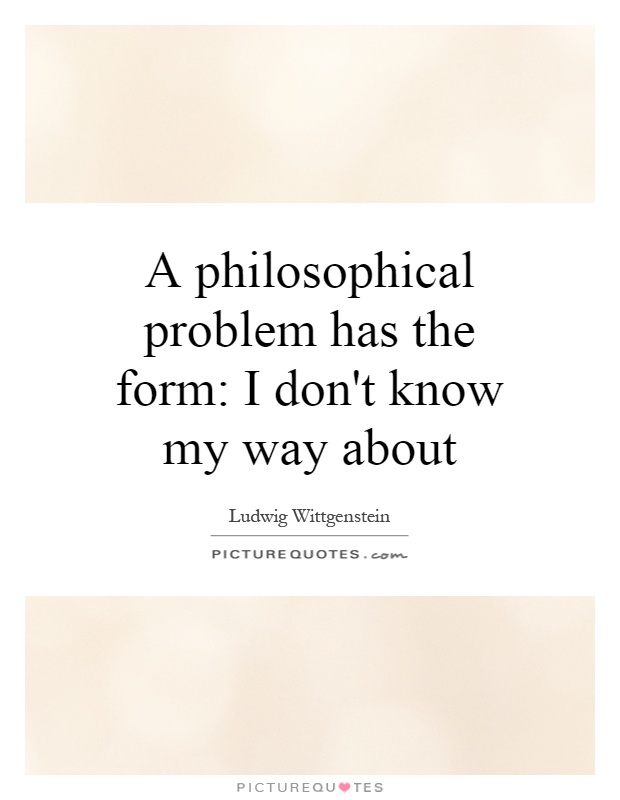A philosophical problem has the form: I don't know my way about

A philosophical problem has the form: I don't know my way about
The statement "A philosophical problem has the form: I don't know my way about" encapsulates the essence of Ludwig Wittgenstein's approach to philosophy. Wittgenstein, an Austrian-British philosopher, is known for his work in the philosophy of language and the philosophy of mind. He believed that many traditional philosophical problems arise from misunderstandings of language and the way we use it to communicate.Wittgenstein argued that language is not just a tool for expressing thoughts and ideas, but also shapes the way we think about the world. He famously stated that "the limits of my language mean the limits of my world," suggesting that our understanding of reality is constrained by the language we use to describe it. This idea is central to his concept of language games, which are the various ways in which language is used in different contexts.
When Wittgenstein says that a philosophical problem has the form of not knowing one's way about, he is highlighting the confusion and uncertainty that can arise when we try to grapple with complex philosophical questions. He believed that many philosophical problems are the result of language being used inappropriately or unclearly, leading to misunderstandings and confusion.
For Wittgenstein, the key to solving philosophical problems lies in clarifying the language we use to discuss them. By examining the way language is used in different contexts and understanding the rules that govern its use, we can avoid the pitfalls of philosophical confusion and arrive at a clearer understanding of the issues at hand.
In his later work, Wittgenstein emphasized the importance of ordinary language in philosophy, arguing that philosophical problems often arise from a misuse of language or a failure to pay attention to the way language is actually used in everyday life. By focusing on the way language is used in specific contexts, we can avoid the traps of philosophical confusion and gain a better understanding of the world around us.












 Friendship Quotes
Friendship Quotes Love Quotes
Love Quotes Life Quotes
Life Quotes Funny Quotes
Funny Quotes Motivational Quotes
Motivational Quotes Inspirational Quotes
Inspirational Quotes